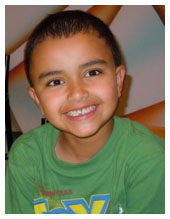Find a job that you love and you’ll never work a day in your life
by Bob Glowacki
I am pleased to introduce Nicole Berlowski as a guest blogger. Nicole is a senior therapist here at Easter Seals Southeast Wisconsin and will describe her journey to where she is today, supporting families and people living with autism.
“Find a job you love and you’ll never work a day in your life”
by Nicole Berlowski, MS
Being a line therapist, and now a senior therapist, has been one of the most rewarding opportunities for me. During my junior year of college, I decided to look for a part time job. I remember seeing a posting for the line therapist position in a local newspaper and decided to apply for it. For those of you who don’t know, a line therapist works one-on-one with a child with autism, often in their home.
I was interviewed, offered a position and placed on my first team. I was excited for the job, yet completely unaware of the amazing career that awaited me. On my first day I was eager to get started, but nervous about my first meeting with the family I would be working with. I wasn’t quite sure what to expect, but after completing my training I felt more confident and excited to be on my own.
It took me a few months to get comfortable with programming, but with solid resources and good people supporting me I let loose. I made a concerted effort to be as creative as I could in order to make a difference in the lives of the family that I was working with.
Within the first few months I noticed changes in the child we were working with. We taught the child how to ride a bike, use the bathroom, and eventually hold a conversation. I would leave work at night feeling like I made a difference, and I would wake up in the morning excited about the opportunities ahead. Words cannot describe that feeling that I would get after the parents recognized and participated in the progress of their child.
At Easter Seals Southeast Wisconsin, we follow the child’s motivation and set up situations to target attainable goals and skills to enhance the lives of not just the children, but their families, too. Over the past four years I have seen monumental changes with the children I’ve worked with. It is a passion of mine to support therapists so that families can learn strategies that will help children obtain goals that no one thought possible.
I once heard the saying “find a job that you love and you’ll never work a day in your life.” Being a line therapist definitely was a job that I loved. I loved it so much, in fact, that I decided to make a career out of it. I went to graduate school and got a Master’s degree, focusing on autism spectrum disorder. I have been living my life as a senior therapist for the past 3 years without looking back. And yes, I still wake up every morning excited about the opportunities ahead!









 An 8-year-old girl from Greenfield, IN put up a lemonade stand to sell drinks during her family garage sale last month and raised hundreds of dollars to donate to our
An 8-year-old girl from Greenfield, IN put up a lemonade stand to sell drinks during her family garage sale last month and raised hundreds of dollars to donate to our